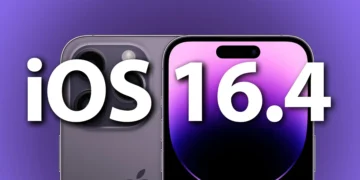Facebook has now officially changed its identity to Meta reflecting the company’s broader ambitions related to metaverse, dubbed as the next big computing platform
According to Mark Zuckerberg, Facebook is perceived as only a social media company but has now become more than that. He believes that while others are trying to work on how people interact with technology, the company, now called Meta, is striving to build technologies so that people can interact with each other.
According to Zuckerberg, while many would question the timing of the metaverse conversation amid the recent controversy, he said that he believes in “what we are building and technology can make life better”.
A trove of internal documents leaked by a Facebook whistle blower Frances Haugen detailed the social giant’s various missteps and struggle in moderating content, especially in multilingual countries like India, its biggest market with over 340 million users.
The idea of metaverse is to make it more immersive where, instead of communicating through the mobile apps, people can feel each other’s presence.
This would mean digital avatars, one each for different occasions, creating your own space, making it easy to teleport from one platform to another, and also building security and safety features built into the platform. One can get into the metaverse through virtual reality platforms, AR glasses, computer or even phone. The company already has its own virtual reality platform, Horizon, an online gaming tool.
Here are more details on ambitions of Meta
> Speaking on the reason behind the rebrand, Zuckerberg told The Verge in an interview that after acquisition of apps including Instagram and Whatsapp, there was “a lot of confusion and awkwardness about having the company brand be also the brand of one of the social media apps.”
“That’s a concern that I think people shouldn’t have to have. People had concerns that, “If I sign into Instagram with this or if I sign into WhatsApp with it, does that mean that my data is somehow gonna get shared over here in a way that I didn’t want?” he added.
> Zuckerberg said that while there’s financial reporting and segment reporting but the company isn’t making organisation changes yet. “That might be something that I’ll consider in the future, but I don’t think that’s something that’s near term on the horizon,” he said.
> Zuckerberg said that he sees himself as the CEO of the company in the next five years and has no plans to step down. “And I’m pretty young. I have a lot of energy. But certainly at some point I’m not [going to be] running the company,” he told the publication.
> Zuckerberg said that the timing of the rebranding effort has nothing to do with the recent leaks that has left the company’s reputation surrounded by bad press. It had “nothing to bear on this. Even though I think some people might want to make that connection, I think that’s sort of a ridiculous thing. If anything, I think that this is not the environment that you would want to introduce a new brand in.”
> Zuckerberg predicts that Metaverse will not be “huge” until the second half of this decade at earliest as the median median age of the people who use the company’s products gets older. He said that the target demographic will be young adults from 18 to 29 years of age.
> Asked about whether Metaverse will support NFTs, smart contracts and cryptocurrencies, Zuckerberg told The Verge that the company is supportive of it.“One of the big questions that people are going to have about virtual goods in the metaverse is, “Do I really get to own this thing? Or is it just content that someone can basically just take away from me in the future?” And I’m pretty sensitive to that, given all the pressures that we’ve had to try to navigate around censorship and what’s the definition of something that’s harmful versus when you have to get in the way of people being able to express something,” he said adding that it becomes a lot more sensitive when there’s money and ownership involved.























